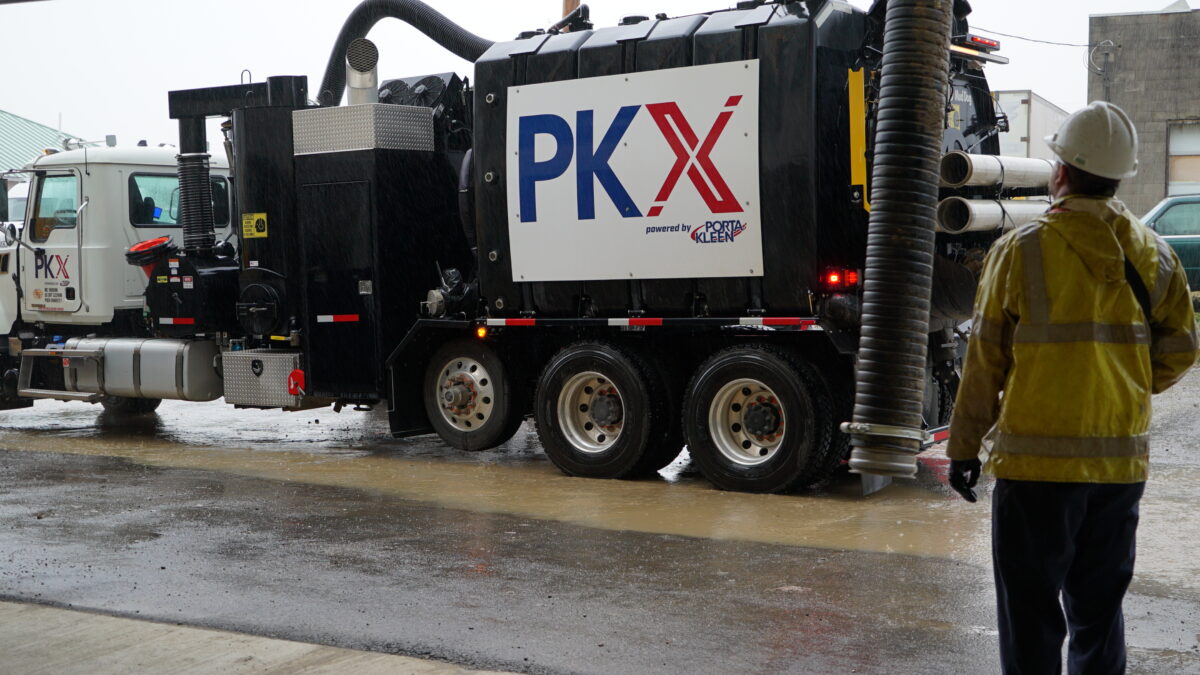
Porta Kleen’s Special Operations Division must be ready for deployment to any situation at any time, and being prepared for the upcoming natural disaster season is first and foremost on Division Manager Bill Sheridan’s mind. “Pre-season, we always take a strong and critical look at our past and what we can do to improve our equipment and our relations with our clients so we can truly provide the best service possible,” he said.
The first step toward total preparedness is conducting a SWOT analysis—strength, weakness, opportunities and threats—which is a framework used in an organization’s strategic planning to evaluate its competitive positioning in the marketplace. “We have to prepare for all hazards so that when we do get a call, we’re not having to be reactive; we’re always being proactive,” Sheridan said. “And that comes far before hearing from our clients.”
“We pride ourselves on our readiness and making sure that all our equipment is constantly up and running,” said Superintendent Greg Erlenbaugh. “We never know where our units are going to go when they’re released from one fire or hurricane to the next.” He said natural disasters don’t occur on a convenient schedule, so the equipment must be ready for deployment at any time, and it may go immediately from one disaster site to another with no down time in between.
“We’re just like a hotel. We have to be ready to go!” Erlenbaugh said. “I might have six minutes notice when someone orders some units.” He said personnel is constantly cleaning the equipment between firefighter shifts during deployment to ensure firefighters have a clean and cool place to rest after battling blazes for hours.
Sheridan said some of the items regularly reviewed at the Special Operations Division are the skillset requirements, recruiting, team building, continuous improvement and knowledge base. “It’s a never-ending process,” he said. “I think that once you become complacent, that’s when challenges can occur. We’re always trying to meet the mark to be the best we can be.”
Truly taking a step back and looking at a SWOT analysis strongly helps to develop a focus on overall improvement and identifying gaps. In fact, Sheridan said it’s not much different from what most people do in their daily lives to stay prepared. “Why do we check our batteries in our smoke detectors twice a year? It’s because we’re trying to be prepared so we’re never being reactive. Why are there spare tires in our cars? We don’t plan on having a flat, but you need to have a spare available,” he said.
“When we do that, then we’re moving forward, aren’t we?” Sheridan said. “That’s when we come together and make a plan, which is then executed. That’s how you develop success. We are continuing to build equipment for our clients based upon their needs.” And the client’s needs constantly change, which requires being consistently proactive.
“We just need to have that flexibility,” Sheridan said. “At times we have to pivot, and we do that. And that’s what we do best, I believe.”
